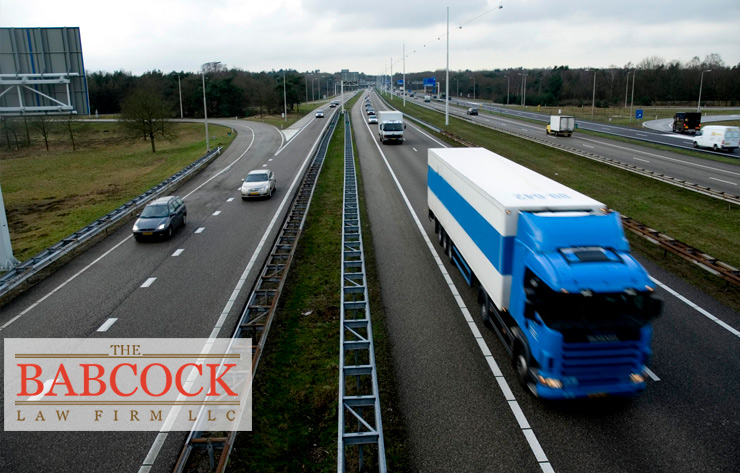Everything You Need To Know About Filing a Rideshare Accident Lawsuit
Our Denver car accident attorneys have extensive experience handling injury cases. It doesn’t matter if you have a minor scrape or a major collision, we are here for you.
How to prove fault and recover maximum compensation after a rideshare accident in Colorado
Ridesharing is a rapidly emerging form of public transportation. The rules and regulations are different in some respects from other older forms like taxi transportation. This article will address the unique issues faced by passengers injured in a rideshare accident.
What is ridesharing?
Public transportation by private vehicle has been around since rickshaws (18th century) and litter bearers (ancient Egypt and Rome). Before the automobile, horse-drawn taxi carriages were prevalent in many parts of the world.
Taxi and limo automobiles have dominated individual public transportation modes in cities since the invention of automobiles.
Now, rideshare is emerging as a popular part of mainstream transportation. Rideshare is a service where the passenger rides in the driver’s personal vehicle for a 1-way trip that is reserved and purchased through an online app. Uber and Lyft are the most widely known company sponsors.
Taxi and limo transportation is regulated by the cities where they operate. Taxi and limo drivers require special operator licenses. Regulations include measures to control competition (including the number of taxis on the road) as well as safety measures (e.g., limits on the number of hours a driver can operate).
Ridesharing is virtually unregulated. Uber and other rideshare companies regard their drivers as independent contractors, not employees. This distinction allows ridesharing companies to avoid labor laws and distance themselves as much as possible from responsibility for their drivers’ actions.
Car accident statistics
Below are the most current national and Uber-specific safety statistics for the U.S.
Motor vehicle fatalities
The National Highway Traffic Safety Administration (NHTSA) reports that for the year 2020, the increase in the motor vehicle fatality rate was the highest on record. They estimate that 2021 fatalities exceeded 43,000.
The agency attributes the increase to alcohol-related fatalities (+14%), unbuckled seat belts (+14%) and speeding (+17%).
Uber’s fatality rate in both 2019 and 2020 was roughly half of the national average. The behavior of 3rd-party drivers contributed to 94% of those Uber fatalities.
Physical assault fatalities
The Centers for Disease Control and Prevention (CDC) reports that nearly 25,000 people died from homicide in 2020. That was a 30% increase from the preceding year.
For the same period, 20 fatalities were reported from 19 physical assaults related to Uber operations. This number represents just 0.000001% or 1 in 100,000,000 trips. The 18% increase in Uber homicide fatalities from 2018 to 2020 was in line with the national experience.
Sexual assaults
According to data from the CDC, more than 50% of women and about 33% of men in the U.S. experience some form of sexual violence in their lifetime, although sexual assault is vastly underreported. Either sexual assault incidents are increasing or reporting is increasing. Either way, sexual assault is on the rise.
Meanwhile, Uber’s reported rate of sexual assaults decreased by 38% between 2018 and 2020. Uber riders represented 43% of the accused parties in the 2020 reports. The decrease was due in large part to Uber’s efforts to increase safety measures and transparency.
In conclusion, Uber’s reports show that 99.9% of Uber trips ended without a safety incident. Only 0.0002% of those trips involved a critical event. The rate of sexual assaults has decreased by 30% since Uber’s previous report as Uber continues to improve its safety measures.
How does insurance work after a taxi cab accident?
If you’re involved in a taxi cab accident, insurance generally works the same as it does with any other car accident. Just like a typical accident, if a taxi cab hits your car, you file a claim with their insurance company. Also, like a typical car accident, if you’re riding in a cab and get hit, you would file a claim with the insurance of the person at fault.
While all that seems fairly easy and straightforward, there are a couple of aspects of a taxi cab accident that can make things complicated:
- First, if you’re involved in a 2-car accident where both the taxi driver and the other driver are at fault, it becomes extremely difficult to get insurance on either side to pay for damages and injuries. They’ll generally fight over the amount that each side is responsible for paying, and you may end up in the middle of a court battle.
- Secondly, if you’re involved in a multi-car accident with a lot of damages and serious injuries, there may not be enough insurance money to go around. Usually, insurance policies have a limit on how much they’ll pay for 1 accident, and that limit can be reached very quickly when dealing with major medical bills. In this case, you’re often stuck settling with the insurance company for less than what you need to cover your medical expenses.
How does insurance work after a rideshare accident?
Rideshare services like Uber and Lyft are exploding in popularity because of the convenience of using an app and the fact that it’s generally a much cheaper option.
So, what’s the problem?
If you’re involved in a car accident while using a rideshare service, it can be a nightmare trying to get insurance to pay. The current debate between these rideshare companies and insurance companies is who is actually liable for such accidents.
Companies like Uber have commercial insurance that covers drivers when they have passengers in the car, but they leave a lot of gray areas, such as coverage in-between jobs, which we’ll discuss below.
How your insurance company inspects your auto accident claim
Denver car accident and insurance dispute attorney R. Mack Babcock discusses how insurers investigate accident claims and who to turn to for help when a claim is denied.
What are the different types of rideshare accidents?
There are 4 categories of rideshare accidents:
- The passenger of a rideshare vehicle is injured during a ride.
- The rideshare driver is injured while on duty.
- The driver of another car is injured in an accident with a rideshare vehicle on duty.
- Passengers in another vehicle are injured in an accident with a rideshare vehicle on its way to pick up a fare.
Insurance companies and Uber recognize 3 different stages of rideshare driving:
- Stage 1. The driver is on his or her own time.
- Stage 2. The driver is logged in to the app but is waiting for a ride request.
- Stage 3. The driver has accepted the ride order, is on the way to pick up, or has the passenger aboard.
The liabilities and insurance coverage depend in part on the stage in which the accident occurs.
When are rideshare drivers liable?
Simply put, a rideshare driver is liable for any damages for which the driver’s negligence or intentional act is the proximate cause.
Rideshare drivers are treated as independent contractors. They have a written contract with Uber and are required to comply with certain criteria and maintain the vehicles according to given standards.
Otherwise, they are on their own. They control where and when they work. They bear all costs (including insurance) and duties. Uber regards itself as a mere agent of the drivers.
What is the insurance coverage for the different types of Uber accidents?
Insurance coverage for an Uber accident depends on the stage of the driver’s service at the time of the accident.
Stage 1: The driver is on their own time and not logged on to the Uber app
If the Uber driver is at fault in an accident occurring during Stage 1, the driver and their personal insurance company are solely responsible. Most states have minimum coverage requirements. In Colorado, they require a minimum of:
- $25,000 for bodily injury or death to any 1 person in an accident
- $50,000 for bodily injury or death to all people in any single accident
- $15,000 for property damage in any single accident
Stage 2: The driver is logged on to the Uber app and waiting for a ride order
Uber maintains a contingent liability insurance policy that covers accidents caused by its drivers. But coverage is only for accidents during Stage 2, and it covers liability damages only to the extent the driver’s personal insurance is insufficient.
But the contingent coverage is limited to a cap of:
- $50,000 per person for injury or death
- $100,000 total per accident
- $25,000 for property damage
The injured party cannot claim under Uber’s contingent policy without first filing a claim against the driver’s personal policy.
Stage 3: The driver has accepted a ride order and is either on the way to pick up or has a passenger on board
For accidents occurring during Stage 3, liability and damages for the drivers’ negligence are covered by the driver’s personal insurance as well as Uber’s commercial insurance.
Uber’s commercial insurance coverage for Stage 3 is not contingent.
The limits are:
- $1 million per person per accident, and
- $2 million maximum total for all persons.
What compensation am I entitled to after a rideshare accident?
Compensation after a rideshare accident may include the following:
- Economic damages. These are damages related to monetary losses like medical expenses, lost wages and property damage.
- Noneconomic damages. These are damages for nonmonetary losses, including pain and suffering, emotional distress and loss of companionship.
- Punitive damages. These are damages awarded in cases where the defendant’s actions were especially careless or intentional.
How do you prove fault in a rideshare accident?
In Colorado, to recover compensation, the injured party must prove that the driver’s negligence or intentional act was the proximate cause of the injury.
However, Colorado also has a modified comparative fault law, which limits the compensation you can recover depending on your percentage of fault. This means, for example, that if you’re found to be 10% at fault for an accident, your final compensation award would be reduced by 10%.
Keep in mind that in Colorado, there is a 3-year statute of limitations for car accidents. This means that if you don’t file a lawsuit within 3 years of your accident, you won’t be able to recover any compensation.
Steps to take after a rideshare accident in Colorado to get compensation
If you’re involved in an accident with a rideshare driver, take the following steps to ensure your chance at compensation:
- Call the police.
- Gather witness information and take photos.
- Seek medical care.
- Report the accident to the rideshare company.
- Consult an attorney to help you file a claim and recover compensation.
5 duties every driver has to act
with reasonable care
Car accidents in Colorado happen all too often. Maybe someone was following the car in front of them too closely. Perhaps someone dropped a lit cigarette in their lap and lost control of their vehicle… whatever the cause of the accident, they are regrettable situations for everyone involved.
Drivers are responsible for doing all they can do to prevent a car accident in Colorado.
Contact an experienced Colorado personal injury attorney
Determining fault and getting compensation after an accident with a rideshare driver can be complicated. If you’ve been involved in an accident with a rideshare or taxi driver in Colorado, contact the skilled car accident attorneys at The Babcock Law Firm. We’ll gather evidence in your case, negotiate with insurance companies and file all the necessary paperwork to ensure you get the compensation you deserve.



